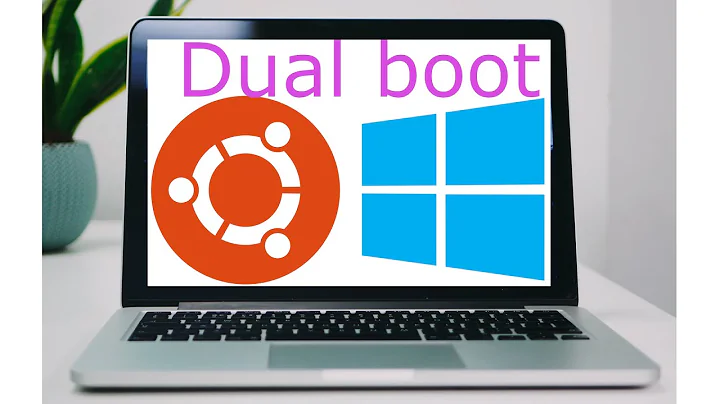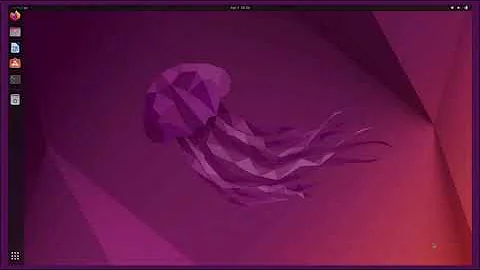Ubuntu on an XPS 14 Ultrabook with mSATA cache and 500GB HD - how to partition for dual boot?
Solution 1
I'm typing this on a XPS 14 on Kubuntu. The mSATA feature is Intel Smart Response Because of that, you can't install Ubuntu directly, you'll need to disable it first. As far as I know, there's no support for that in Linux yet. After that, I can't see the SSD during Ubuntu installation. I did manage to install everything into the 500GB disk and keep Win 7 dual boot though. Hope you have better luck than me :)
Solution 2
There are three places where caching can be configurated.
You can access to the RST control panel in your windows (usualy accessible via an icon in the system tray) to deactivate the caching thing before deactivating RST itself at boot-time
Then you can access to RST Option ROM hiting ctrl-I at boot time to see your drives and correct your configuration
You might want to access to your BIOS to deactivate RAID feature for your drive, but here it should not be the case.
After all these deactivations, your SSD drive should come back !
Solution 3
When partitioning a system like this there are quite a few question that you have to ask:
- Which OS will need more space? This will probably be the one you use more, but if you're keeping Windows around for games, you'll have to factor in their size.
- To what extent do you want to share data between the two systems? Do you want a shared data folder, or do you just sometimes want to copy things to and fro? If you want to have a shared data folder that you can access from both systems, it will probably have to be on a Windows partition. This might as well be the main system partition, which will have to be large enough.
- Swap space: Linux traditionally uses a swap partition, although you can configure it to use a swap file. It won't take much space in the grand scheme of things, but it's something to remember.
- How do you want to use the SSD? Some like to put their operating system on an SSD (and keep data separately) for faster boot-up. You say you want to use it as cache, but that may not be a good idea since SSDs don't deal particularly well with frequent writes.
On Linux, you can make the two media appear continuous using LVM, but I don't see a particularly large benefit in distributing use more or less randomly between SSD and HDD.
Here's an example of how I might partition the system for a use case where Windows is just there for occasional use:
mSATA SSD (32G): 1 partition
- 32G - Ubuntu "/" partition for the operating system (ext4)
SATA HDD (500G): 3 partitions
- 100G - Windows C: (NTFS)
- 8G - Ubuntu swap
- 392G - Ubuntu "/home" partition for data (ext4)
Related videos on Youtube
JDS
Updated on September 18, 2022Comments
-
JDS almost 2 years
I am getting an XPS 14 ( http://www.dell.com/us/p/xps-14-l421x/pd ) and I want to dual-boot Windows and Ubuntu. This thing has a 500GB standard HD and a 32GB mSATA that can be used as cache.
- Does anyone know how this thing is partitioned?
- Is the OS installed on the mSATA drive and data is on the big HD?
- Is there a BIOS controller or maybe even a Windows driver that makes the mSATA drive and 500GB HD appear contiguous?
I get the impression that something makes the mSATA be used invisibly as cache, but I can't find any technical documentation how that works. My primary concern here is wrt dual-booting Ubuntu. I want to know if I need to partition the mSATA separately, or the big HD, or just partition the "magic" contiguous disk space that appears available to the OS.
-
JDS almost 12 yearsThanks, but this doesn't really answer what I'm asking, which is how is the mSATA used for caching and is this invisible to the OS? I actually know the answer to all those partitioning suggestions, and typically partition like this: 20GB or so for Windows (that's XP; probably 40GB for Win7)|20GB for Ubuntu|20GB unused for if I want to install another Linux|2GB swap|remainder for /home, hopefully more than 20GB and on modern disks, usually ends up being hundreds of gigs. But I don't know how this mSATA will show up and if it turns out to be a huge PITA or not work, I'll just get a 240GB SSD
-
tjollans almost 12 yearsOkay, I didn't know that. What I'm still a bit confused by: do you already have the device (you sound like you do) or are you planning to buy it/waiting for it to be delivered? (you're getting one, you say)
-
JDS almost 12 yearsI was approved, and the purchase was made, of this laptop as my work technology refresh (i.e. I'm getting a new laptop at work). I don't have it in hand yet.




